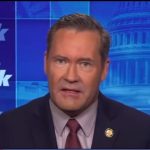It comes after Scott Morrison vowed he would not set a goal for the completion of first doses, instead saying the government would “like to see these doses completed before the end of the year”. The Prime Minister said it was “not possible to set such targets” due to the ongoing uncertainties around the vaccines. Federal authorities are seriously considering the combined clinic plan, which has been suggested by GPs who are frustrated their clinics are investing major resources in distributing the vaccine even though they are receiving only 50 doses a week. By teaming up with other clinics, they say they can vaccinate patients more efficiently at pop-up local hubs.Federal Health Department bureaucrat Dr Lucas de Toca, who is leading the primary care response to COVID-19, told GPs last Thursday the idea was “definitely on the cards”. Trade Minister Dan Tehan on Sunday said it was “definitely the aim” to have all Australians vaccinated with one dose by the end of December. “That is the goal we have set: trying to have all Australians have a dose by the end of the year,” he said. “When you’re dealing with the pandemic, there are a lot of unknowns.”This week, the rollout is expected to reach its planned peak capacity, with an extra 1000 GP clinics coming online to ensure there are more than 5000 primary care distribution points nationwide. Under its 12-week plan for the first two phases of the rollout, the federal government has been intending to use that network for the next two months. Dr de Toca told GPs that while authorities were focused on ensuring the existing plan worked effectively, he acknowledged doctors were keen to explore new distribution models and said the government would “keep adjusting as we go”. “That sort of combined model is something that will play a big role as we keep moving forward,” Dr de Toca said.“There are plenty of opportunities to review the models, especially as we move into further phases where rapid access by large numbers of people will be important.” Werribee GP Joe Garra, whose clinic receives just 50 doses a week, said this month that he wanted to team up with 15 other local doctors to set up a bigger vaccination clinic in a public building. “We are working all the solutions around doing it safely and not wasting vaccine doses,” Dr Garra said.By the end of this week, there are expected to be 1000 GP clinics receiving 100 doses per week, 300 clinics receiving 400 doses a week and about 3400 practices receiving 50 doses a week. Another 130 GP-led respiratory clinics are expected to deliver 700 doses a week.MORE AUSSIES READY TO GET JABThe number of Australians who say they will receive a COVID-19 jab has increased despite recent worries about the AstraZeneca vaccine.Research by Roy Morgan found 69 per cent of Australians were willing to be vaccinated, 7 per cent had already received a jab and 7 per cent were willing to be vaccinated once the Pfizer dose becomes available – totalling 83 per cent and three points higher than in February.The snap SMS poll conducted on April 9 and 10 also revealed support for vaccines was split depending on political allegiance.Only 13 per cent of Liberal votes said they would refuse a jab, increasing to more than one-in-five Labor and Green voters.Public opinion on the Morrison Government’s handling of the virus was evenly split, with 51 per cent disapproving and 49 per cent approving.Victoria is the state most unhappy with the Federal Government’s response, with 62 per cent of residents disapproving while 54 per cent of NSW residents were happy with Morrison’s performance.“Despite the slower than expected rollout of COVID-19 vaccines the increasing support for being vaccinated is a positive sign that vaccine coverage will reach a large majority of the population when the vaccine rollout is completed – which may not be until early 2022 and current rates,” Roy Morgan CEO Michele Levin said. NURSES SEE RED OVER DELAYVictorian nurses are demanding the federal government relinquish control of the vaccine rollout in aged care homes amid concerns the state’s most vulnerable are still at risk. With nine out 10 private aged care nurses claiming they still had not received their COVID-19 shots by Easter, the nurses union has issued a plea for the Victorian government to take control of the phase 1a private aged care workforce rollout.Federal opposition health spokesman Mark Butler is also arguing for the Commonwealth to give states and territory governments bigger roles. “The states are best placed to do this sort of mass health service delivery – that is what they do,” he said on Sunday. “The Commonwealth doesn’t have a history of that. “We really can’t have a situation where vaccines are rolling out into next year which seems to be the Prime Minister’s thinking.”In a survey conducted over the Easter long weekend, 86 per cent of Australian Nursing and Midwifery Federation (Vic Branch) private aged care members – nurses and personal care workers – said they were yet to receive a jab.Of those who had been vaccinated, most reported getting their doses from their GP. The Andrews Government – responsible for vaccinating public aged care residents and staff – has overseen the majority of the workforce to receive at least one dose so far. Last year in Victoria almost 2000 private residential aged care residents contracted COVID-19 and 655 of those died.ANMF (Vic Branch) secretary Lisa Fitzpatrick said private aged care staff needed to be prioritised. “For staff to be told to organise their own vaccination makes a mockery of their importance as a 1a priority cohort,” she said.
Powered by WPeMatico






